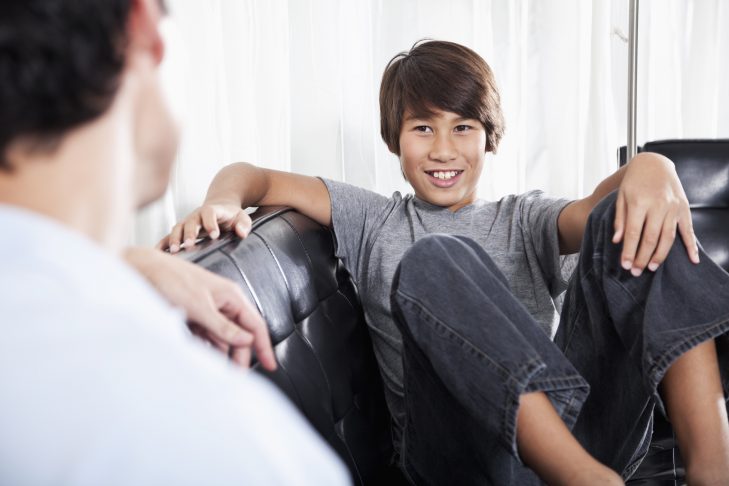There’s probably nothing more important to parents than our kids’ well-being, their growth toward independence and their ability to thrive in this world as both kids and adults. And it’s our job to make that happen—our job to provide the resources, experiences and dispositions that will help them be who they want to be and achieve what they want to achieve. We want that really badly, and we take it really seriously. And so, when we see our tween or teen displaying behaviors that run in the face of those hopes and in fact our perceived obligation to them, we react. And, unfortunately, often we don’t think before we do.
In her book “How to Hug a Porcupine: Negotiating the Prickly Points of the Tween Years,” Julie Ross helps us parents become more aware and recognize what’s going on when we get triggered. It’s not just that our kids won’t succeed, but worse yet will become failures, and essentially be unsatisfied and unfulfilled in their lives forever…isn’t it amazing how our minds can go there in a nano-second?
See if this scenario she writes about sounds at all familiar:
“Olivia complains about eleven-year-old Jordan: ‘Jordan’s a slacker. He was lazy in elementary school, and now it’s as if he’s turning into a sloth. I’m really worried that he’s going to fail!’ This type of thinking is not productive and leads to harmful action. We must first change our thoughts and then have a shot at more productive action.”
In our Parenting Your Tween Through a Jewish Lens class at Temple Shir Tikva in Wayland this year, more than a few of us resonated with that scenario. Ross suggests that when we say, “Jordan will flunk out,” we’re feeling afraid. And when we get afraid, we’re evolutionarily programmed to jump into “fight or flight” mode. When we’re afraid, we often feel angry as well…and we know how well either of those emotions “work” with our tweens and teens.
Ross suggests instead that we change our initial thought from “Jordan will flunk out” to “Jordan’s struggling in middle school,” which she suggests leads to a feeling of concern or compassion. And from that place, we have many more resources at our fingertips. From concern and compassion, we can ask questions and we can listen. Most important, we can be our best as parents—in a more thoughtful and positive place, rather than reactionary or triggered.
As our sages wrote in a text we looked at to ground ourselves in a Jewish context: “Whenever one becomes angry, if one is a wise person, one’s wisdom leaves her/him; if one is a prophet, his prophecy leaves him/her. The life of the irate is not (true) life.”
Here’s to keeping all the wisdom we have, living a true life and in so doing, help our kids do the same.
Judy Elkin is a longtime Jewish educator, an instructor for Parenting Through a Jewish Lens and a certified personal coach.
This post has been contributed by a third party. The opinions, facts and any media content are presented solely by the author, and JewishBoston assumes no responsibility for them. Want to add your voice to the conversation? Publish your own post here. MORE


